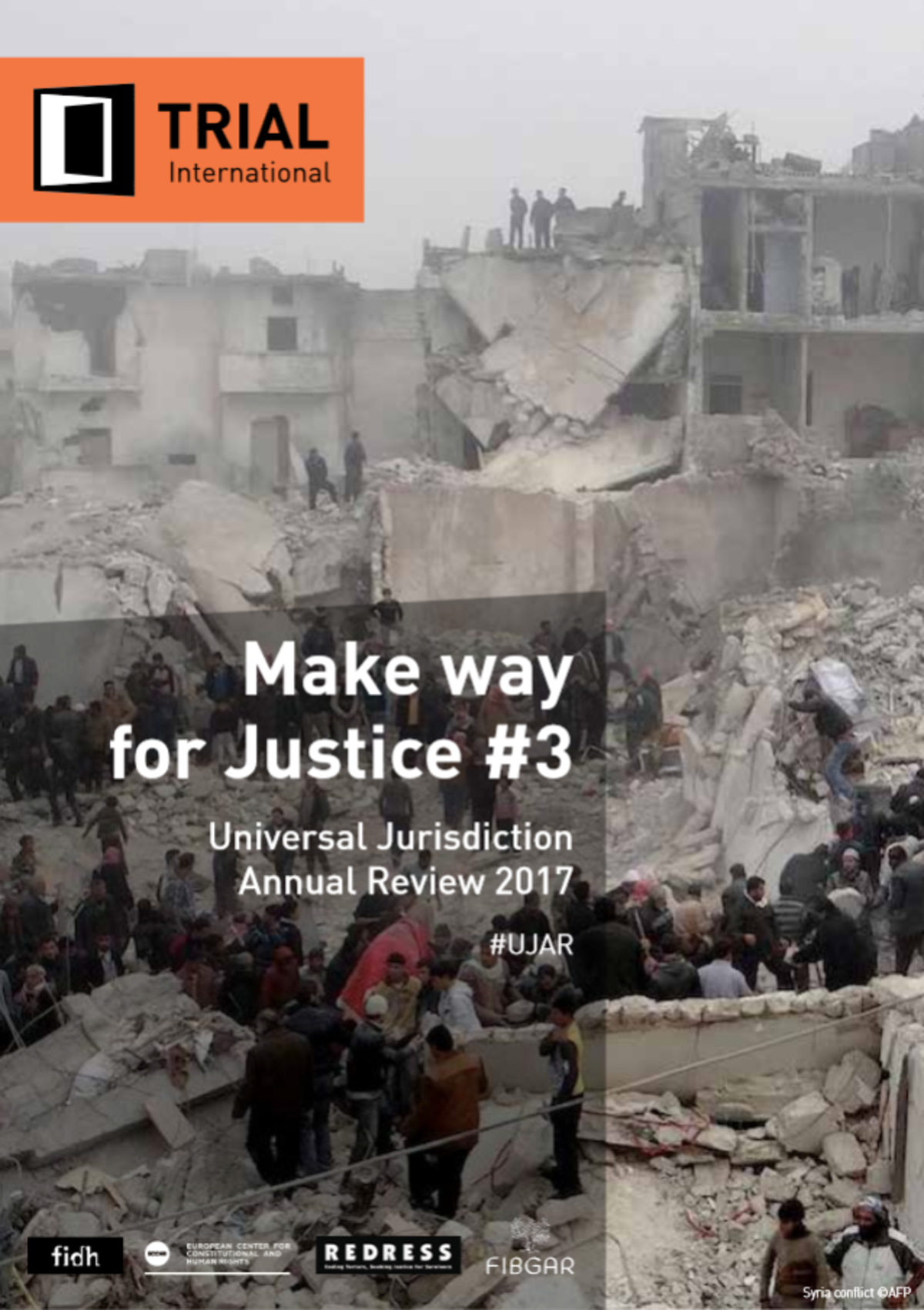Universal Jurisdiction Annual Review 2017
Andreas Schüller
Report
2017
Five years of conflict, hundreds of thousands of dead. In Syria, large-scale war crimes are committed in all impunity. The international community has proved incapable to prevent the bombing of humanitarian convoys and medical facilities, the starvation of civilians and the use of chemical weapons.
Effective prosecution of these crimes has been repeatedly impeded at the international level: the idea of a hybrid tribunal has never seen the light of day, while referral to the International Criminal Court (ICC) has been vetoed by China and Russia, both permanent members of the United Nations Security Council. Is this synonymous with a judicial deadlock for victims? Not necessarily, as justice is taking an audacious path: universal jurisdiction.
Throughout 2016, authorities in Austria, Finland, France, Germany and Sweden have brought charges for alleged crimes in Syria. Investigations are ongoing in Norway, Switzerland and The Netherlands. Last year alone, 11 Syrian cases have seen significant judicial advances, including 3 convictions for war crimes.
Universal jurisdiction has gathered unprecedented momentum in 2016. In this annual report, ECCHR and its partners FIBGAR, FIDH, REDRESS and TRIAL International look back on its application through 47 recent cases. To illustrate this breadth the organisations release their joint annual report on universal jurisdiction, Make Way for Justice #3.


